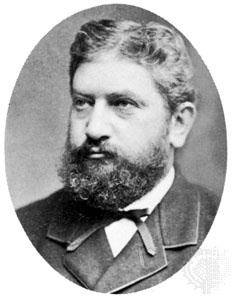Cohnheim, Julius Friedrich
German pathologist
born July 20, 1839, Demmin, Prussia
died Aug. 15, 1884, Leipzig
 pioneer of experimental pathology who helped determine the morbid changes that occur in animal tissue affected by inflammation, tuberculosis, and other disease states.
pioneer of experimental pathology who helped determine the morbid changes that occur in animal tissue affected by inflammation, tuberculosis, and other disease states.At the Pathological Institute, Berlin (1865–68), Cohnheim was an outstanding pupil of Rudolf Virchow (Virchow, Rudolf), founder of the science of pathology. While assisting him, Cohnheim also conducted extensive research into the causes of inflammation. By 1867, he confirmed earlier suspicions that the condition results from the passage of leukocytes (white blood corpuscles) through capillary walls and into tissues, and that pus consists mainly of the debris formed by disintegration of these leukocytes. He summarized his findings in Neue Untersuchungen über die Entzündung (1873; “Recent Researches on Inflammation”).
Cohnheim served as professor of pathology at the universities of Kiel (1868–72) and Breslau (1872–78), where in 1876 he witnessed Robert Koch's historic demonstration of the infectivity of anthrax bacilli. Cohnheim's induction of tuberculosis in the anterior chamber of a rabbit's eye one year later led to Koch's discovery of the tuberculosis bacillus.
Cohnheim's Vorlesungen über allgemeine Pathologie, 2 vol. (1877–80; Lectures on General Pathology), far outlasted contemporary texts on the subject, and his method of freezing tissue before slicing it into thin sections for microscopic examination is now a standard clinical procedure.